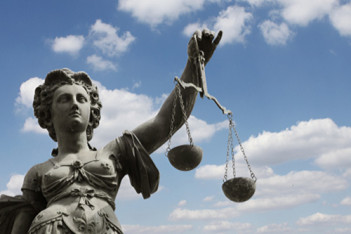lawyer, 23 years of experience in enforcement.
The execution of decisions, according to which the debtor is obliged to perform certain actions, is a decision of a non-property nature and has a general order of execution, but at the same time, each category of execution has its own characteristics.
Therefore, the court can make a decision on the obligation of the debtor to perform certain actions, this decision, as a rule, is of a binding nature, for example: to oblige to remove obstacles or not to create obstacles in living; oblige to demolish buildings, structures, superstructures or annexes; to oblige to vacate the land plot; etc.
Court decisions concerning visitation with children have their own special procedure of execution.
Importantly! in the event that a court decision provides for the performance of some action, and at the same time there are no measures of a coercive nature, then such decisions are not subject to execution by executors.
The execution of binding decisions begins after the presentation of the relevant package of documents for execution and on the condition that the writ of execution complies with the requirements of the Law of Ukraine "On Enforcement Proceedings".
Simultaneously with the opening of enforcement proceedings, the state executor will issue resolutions on the collection of minimum costs of the executive proceedings and a resolution on the collection of the enforcement fee, for each writ of execution separately.
The executive fee for this category of cases is fixed, namely: for individuals it is two minimum wages (as of April 1, 2024 – UAH 16,000) for legal entities – four minimum wages (as of April 1, 2024 – UAH 32,000). In this category of cases, the enforcement fee may be appealed and not paid if, at the time of opening of the enforcement proceedings, the debtor has already complied with the court's decision.
When opening executive proceedings, the executor sets a 10-day deadline for the debtor to comply with the court decision, after which, on the next working day, he must check whether the debtor has complied with the court decision.
In the event of non-execution of the executive document on one's own, forced execution begins, which consists of the following:
The executor appoints the day and time of enforcement of decisions, thereby providing the debtor with an additional term for the implementation of the decision. As a rule, the executor grants such an additional deadline for execution twice, but for each failure to comply with the court decision, the executor brings the debtor to administrative responsibility, in the form of a fine.
The first fine for non-compliance with the court decision is UAH 1,700 for individuals, UAH 5,100 for legal entities, the second fine is UAH 3,400 for individuals, and UAH 10,200 for legal entities.
After the imposition of an administrative fine and in case of non-compliance with the court decision for the third time, the executor prepares a notification about the commission of a criminal offense and sends it to the pre-trial investigation authorities. If it is not possible to execute the decision without the participation of the debtor, then after the notification is sent to the police authorities, enforcement proceedings are carried out.
If the execution of the court decision is possible without the participation of the debtor, the executor organizes such execution and, if necessary, involves institutions, organizations, experts, specialists and other persons whose assistance will be necessary in the execution of such execution actions. Involvement of other persons, institutions or organizations is possible on the condition that the debt collector makes an advance on execution actions. If the debt collector refuses to advance enforcement actions, the executive can execute the enforcement document and return it to the debt collector in connection with the obstruction of enforcement actions.
Additional costs incurred by the debt collector and the department during such execution shall be borne by the debtor and, accordingly, may be recovered from the debtor's property and funds.
Therefore, in the presence of decisions of a binding nature, the help of a lawyer is essential for both the debt collector and the debtor, because after going through, as a rule, a complex court proceedings, the implementation of such decisions is no less difficult. A lawyer or advocate will provide legal services during such executions that will help preserve and protect the rights of both the debt collector or the debtor and other persons who are in one way or another connected with the parties to the enforcement proceedings. It is possible to get a lawyer advice or lawyer services at the "Consultat" legal service, and accordingly, the managers will select a specialist who will help provide support in the execution of this category of cases.
































